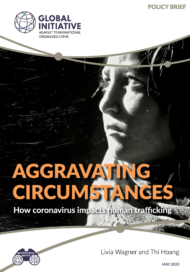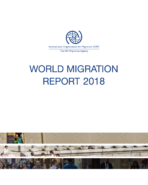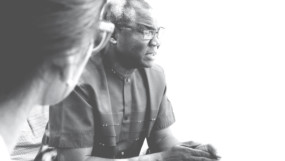Posted on 01 Apr 2021
Although the UK is established as a world leader in responding to human trafficking, recent developments involving breaches in the country’s handling of human trafficking dynamics highlight that it is still a worrying issue, especially in the context of worsened conditions due to the COVID-19 pandemic.
In 2011, an inquiry into human trafficking in Scotland found that the police and immigration authorities had failed to identify the thousands of women, men and children trafficked into Britain as victims of organized crime. The report found that trafficking victims in Britain were often forced to work in domestic services, prostitution, food processing and cannabis cultivation. However, the issue was often treated as a migration, sexual offences or law enforcement matter, and human trafficking was altogether ignored.
The report is now over 10 years old and since then the Modern Slavery Act was introduced in 2015 to improve the UK’s response to human trafficking. However, recent developments point to the country’s failings to follow the policy on identifying potential victims. In November 2020, a high court judge ruled that Priti Patel, the Home Secretary, had not been following her own anti-trafficking policy of asking asylum seekers questions about their journey to the UK, a key aspect of human trafficking identification.
During the case, it was found that three women claiming asylum in the UK, whose lawyers had identified them as victims of human trafficking, were not being asked these questions, and consequently had been due to be deported.
This failure to identify victims of trafficking is a major issue. Currently, as many as 90% of trafficking victims in the UK may be going undetected. The nature of the crime contributes greatly towards this, but it is also becoming clear that misconceptions surrounding what human trafficking is and the way in which it happens are increasingly problematic when it comes to identifying and protecting victims.
The reality is that many cases of trafficking can begin with smuggling, where those being smuggled are given the false hope of beginning a new life where they are able to work in the UK, and exploitation and abuse of power occur at a later date, trapping victims in conditions of modern slavery. Influxes of human smuggling into the UK have recently increased, with almost 1 900 migrants arriving to the country in small boats in 2019 – doubling arrivals in 2018 – resulting in the conviction of 130 people for smuggling migrants into Britain.
A clear example of this was tragically seen in 2020 when 39 Vietnamese nationals were found dead in a lorry in Essex, after being smuggled into the UK. Detective Chief Inspector Daniel Stoten, who led the investigation into the deaths, said that although the 39 had started their journey voluntarily, it was highly likely that they were exploited and would have continued to have been exploited if they had survived their journey to the UK. ‘There is massive organized crime behind this. … Most [victims] would have gone on to work in nail bars for less than the minimum wage, getting just a couple of pounds an hour. That is modern-day slavery, even if they were signing up to it,’ said Stoten.
Now, nearly a year later, those responsible for the deaths have been jailed, but incidents continue. In March 2021, a Turkish driver was arrested for attempting to smuggle people hidden in his truck from England to France. However, the issue of how smuggling and trafficking increasingly overlap has failed to be addressed – a problem aggravated by the COVID-19 pandemic.
A new report from the United Nations Office on Drugs and Crime has found that the pandemic has resulted in increasing difficulties when it comes to identifying and protecting victims of human trafficking. This is due to several reasons: firstly, countries have adjusted their priorities during the pandemic, meaning there has been a decline in support services for trafficking victims. Secondly, restrictions on personal mobility have been imposed as part of national lockdowns, which has drastically reduced the likelihood of victims being identified and relieved from their exploitative situations. And, lastly, a massive rise in unemployment and decreases in income have meant that a large number of people already vulnerable to trafficking have become even more vulnerable.
During this period when individuals are at a heightened vulnerability to trafficking, combined with diminished odds that they will be detected, the identification process is more important than ever. However, until governments begin to recognize the issues surrounding the definition of human trafficking and smuggling, and enforce existing anti-trafficking policies effectively and methodically, victims will continue to go under the radar.
Reanna Smith is a Political Correspondent for the Immigration Advice Service, a law firm offering immigration services including asylum support, Spouse Visa application assistance and professional legal advice. She reports on the latest immigration news as well as immigration and human rights issues.



